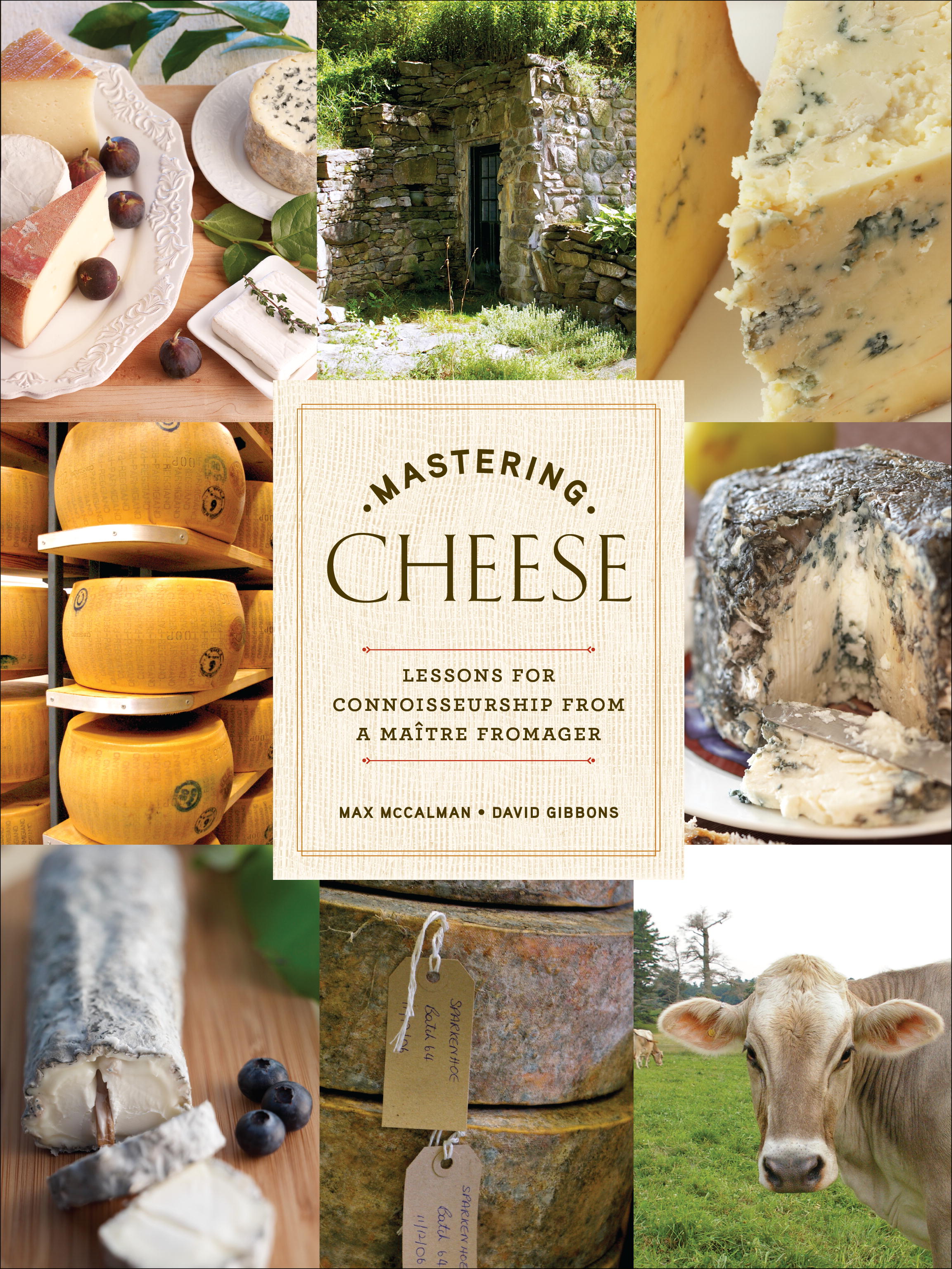Mastering Cheese: An Interview with Max McCalman & Book Giveaway
It is hard to imagine that I would have found a mission that I would have embraced more passionately; I've loved cheese all my life. At a very early age my father told me that I
might become a good teacher.

Max McCalman, the man who started the cheese department at New York city's Picholine and Artisinal Brasserie & Fromagerie, who has written books such as Cheese: A Connoisseur's Guide, and who heads the dynamic education program at Artisanal, has published a new book. Filled with knowledge ranging from the difference in sheep and cow milk production to overviews of American dairy pioneers and raw-milk cheeses, Mastering Cheese is a textbook fit to grace the bookshelf of any seriuos cheese lover. And it just so happens to look smashing next to your pillow if you, ahem, fall asleep with it.
In honor of this educational yet decadent cheese bible, I'm happy to announce that "It's Not You Brie" is hosting a book giveaway contest for one copy of Mastering Cheese AND featuring an interview below with the man himself, Max McCalman. Read to the end of the interview to find out what the book giveaway question is, and enjoy! By the end of the interview, if you can't understand why you would want to own a book written by this man, lord bless you, I can't help you.
Max McCalman and "It's Not You, it's Brie" Interview
What compelled you to write a 383 page cheese book, now?
Cheese has suffered for far too long, this primordial near-perfect food with a stellar track record for food safety, and a food that is amazingly complex at the same time, that when invited to write another book, this one to be titled "Mastering Cheese," at first I jumped at the opportunity, my attempt to answer the many questions that I have been asked for the past fifteen years and to allay fears and confusion, all within the cotext of a book that would offer "mastery." After realizing that the title suggested that it would be all-emcompassing, if not near-complete (as is cheese - nutritionally speaking) then I knew that I would need to stretch beyond the original word count that was budgeted. As it was, I exceeded that count by well over 40%; it had to be pared down. Quite frankly: I have a mission to rescue cheese.
What do you find to be the most understood thing about cheese in the United Sates? In Europe?
For the US I would say that the number one most misunderstood thing about cheese is that is actually is very good for you, or at least that it can be if it is produced and maintained well.
In Europe (for the most part) it seems to be largely receding in appreciation, sadly. As for most misunderstood thing about it? Very similar to the problem here in the US, but especially sadly to see: that it can be as good, both nutritionally and aesthetically, or that it may even be "safer" if it is produced with pasteurized milk. The trend throughout much of Europe is toward the production of cheese made with pasteurized (read: "compromised") milk.
What are the top three things that you wish people knew about cheese that they don't?
What genre or realm of cheese do you wish people would embrace, perhaps because it would surprise them, or maybe just because it is often overlooked?
I believe that we often look for the single best pairing partners for cheese: wines, beers, other foods and beverages. When instead I would like to invite people to enjoy cheese without relying on other people's recommendations or mandates for the ideal successes in pairing partners. Try multiple partners, share the assessments, applaud the wide range of cheese types that are available and have a little variety of types; look to the unexpected matches for new surprises and tolerate other people's confusion or dissatisfaction with a pairing that seems to work fine for you.
Secondly, I believe that the US is fertile ground for some world-class cheese making; this is where the real excitement is occuring; though not to discount what is still happening in other countries that are still (if not more so) in touch with its agricultural and gastronomic heritage.
What are your feelings about all the cheesebooks that are coming out right now? Excitement? Trepidation? Hunger?
It is great to see the new attention that is being brought to cheese. It is helping to affirm the value of cheese, a food that has been so profoundly misunderstood. Much of what appears to be coming out in print is highlighting the hard work and the passion that goes into producing, developing and maintaining fine cheese.
If you didn't volunteer to take charge of the cheese cart at Picholine, what do you think you'd be doing today?
It is hard to imagine that I would have found a mission that I would have embraced more passionately; I've loved cheese all my life. At a very early age my father told me that I might become a good teacher.
Book giveaway rules:
1. Leave a comment in the comment section in this post answering either of these two questions, and I will enter your name into a drawing to win the contest:
a) Does Max like raw-milk cheeses?
b) What's your favorite raw-milk cheese?
2. Unless you feel like sharing the cost of shipping this glorious, fatty book,with me, live in the continental United States. Kisses.
That's it, good luck!


